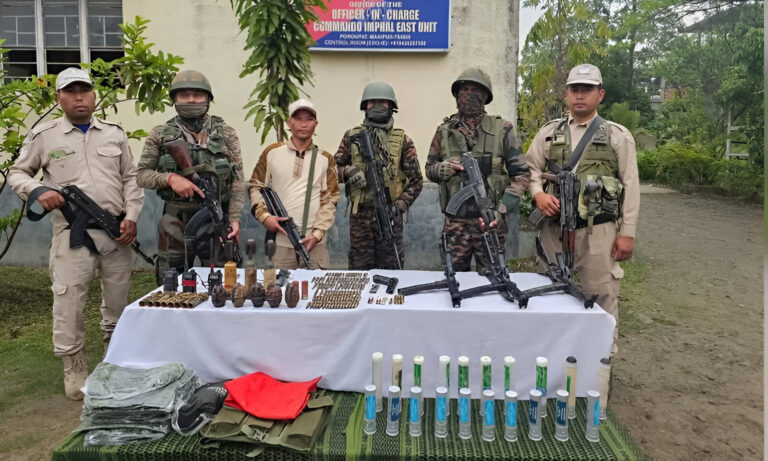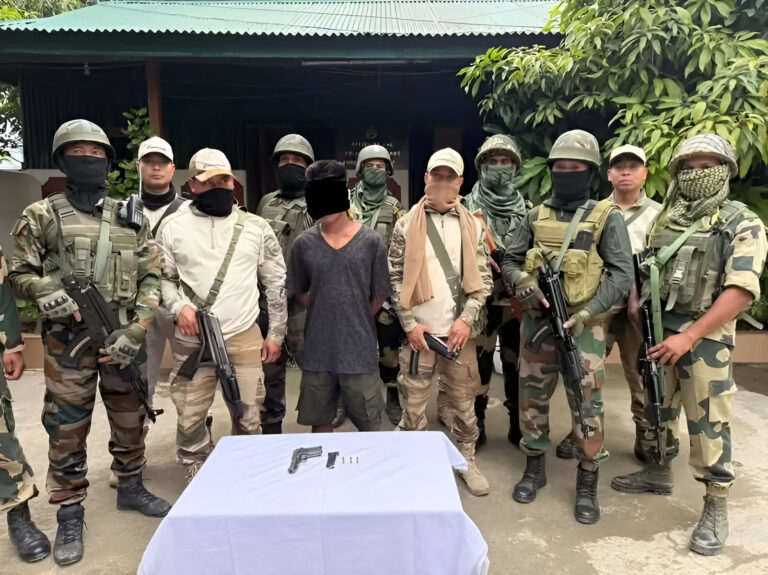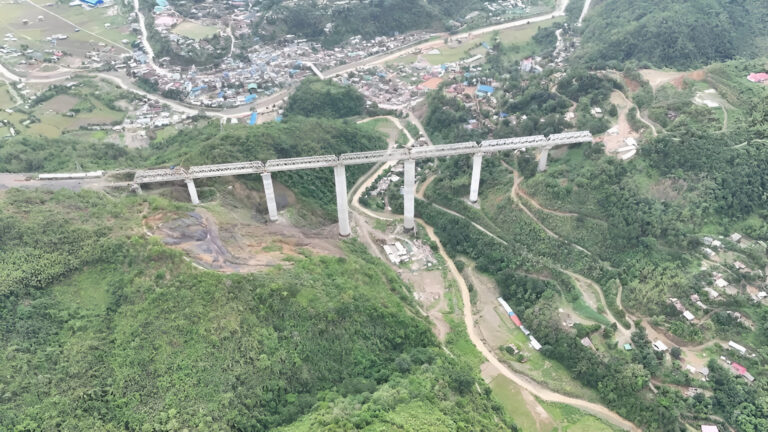Manipur Police Arrest Two KCP (PWG) Militants in Kakching
Summary of the News
In a strategic operation conducted in Kakching district on December 16, 2024, the Manipur Police arrested two militants of the Kanglei Communist Party (People’s War Group) [KCP (PWG)]. Acting on credible intelligence, the authorities seized a haul of arms and communication equipment from the duo. This success reinforces the government’s determination to dismantle insurgent networks that have long plagued the state.
Unpacking the Arrest of Two KCP (PWG) Militants in Kakching
Manipur, a land of natural beauty and diverse cultures, has faced decades of insurgency. The recent arrest of two KCP (PWG) militants in Kakching district is a clear signal of the state’s relentless efforts to combat insurgent threats. Let’s dive into the details of this operation and its wider implications.
The Arrest: How the Police Closed In
When it comes to tackling militancy, information is power. Acting on precise intelligence, the Manipur Police carried out a swift operation in Kakching on December 16, 2024. The arrested militants, identified as Irengbam Rameshwar Singh and Elangbam Herojit Singh, are alleged members of the KCP (PWG), a separatist outfit active in the region.
Seizures During the Operation
The police recovered significant items during the operation, including:
- Weapons: A pistol and ammunition.
- Communication Devices: Baofeng handsets and mobile phones, vital for their operations.
- Explosives: Improvised explosive materials, highlighting the group’s capability to stage attacks.
- Other Equipment: A vehicle used for covert transportation.
The operation highlights the role of actionable intelligence in preventing potential threats.
Who is KCP (PWG), and What Do They Want?
The Kanglei Communist Party (People’s War Group), or KCP (PWG), is a prominent insurgent faction in Manipur. Their primary objective? Establishing an independent socialist state through armed struggle. They’ve been involved in activities like extortion, attacks on government establishments, and occasional high-profile assassinations.
But why do groups like KCP (PWG) thrive? It’s a mix of long-standing grievances, historical neglect, and socio-economic disparities that fuel discontent in the region.
Kakching’s Growing Security Concerns
Kakching, though known for its serene landscapes, has recently become a focal point for insurgency-related activities. The district has witnessed heightened security concerns, particularly following the recent killings of two migrant workers. Such incidents underline the urgency for robust counter-insurgency measures in the region.
Migrant Worker Vulnerability
The targeting of migrant workers in recent months has added a layer of complexity to the security situation. These attacks not only disrupt lives but also deter much-needed development projects in the area.
Insurgent Strategies
Militant groups often exploit local grievances, using fear and violence to expand their influence. By targeting both civilians and state infrastructure, they aim to destabilize governance and demand attention for their cause.
Manipur’s Insurgency Problem: An Ongoing Battle
Insurgency in Manipur has roots that run deep. For decades, the region has grappled with militant groups vying for autonomy or independence. This ongoing unrest creates a volatile environment for residents and authorities alike.
The Role of Geography
Manipur shares a porous border with Myanmar, making it vulnerable to smuggling, arms trafficking, and cross-border militant movement. This geographical reality adds layers of difficulty for security forces.
Economic and Social Fallout
Insurgency doesn’t just impact security—it hinders economic growth, scares away investors, and disrupts everyday life. Businesses often face extortion, while development projects see delays due to threats or attacks.
Government Efforts to Tackle Insurgency
So, what’s the government doing to combat this? The approach is multi-faceted, involving hardline tactics and softer, community-driven initiatives.
Tough Stance on Militants
Operations like the one in Kakching showcase the government’s resolve to crack down on insurgent groups. These actions involve meticulous planning, intelligence sharing, and close coordination among security forces.
Rehabilitation and Peace Talks
In an effort to bring militants back into the fold, the government has offered peace talks and rehabilitation programs. These initiatives aim to provide former insurgents with opportunities to lead normal lives.
Development as a Solution
Economic development is another tool in the fight against insurgency. By creating jobs and improving infrastructure, the government hopes to address some of the socio-economic issues fueling unrest.
Implications of the Arrests
The arrest of two KCP (PWG) militants is more than just a tactical victory—it’s a symbolic win in the broader fight against insurgency. Here’s why this matters:
- Disrupting Militant Networks: The apprehension of key members weakens the operational capabilities of the group.
- Boosting Public Morale: Successful operations reassure citizens of the state’s commitment to ensuring their safety.
- Sending a Message: The arrests serve as a warning to other militant groups operating in the region.
Challenges Ahead
While the arrests are a step in the right direction, the road to lasting peace is far from easy. Here are some of the challenges that lie ahead:
- Porous Borders: Smuggling and cross-border militant activities remain significant hurdles.
- Community Trust: Winning the trust of local communities is essential for sustained peace.
- Long-Term Solutions: Addressing the root causes of insurgency requires patience, investment, and political will.
The Path Forward
Manipur’s story is one of resilience. Despite the challenges posed by insurgency, the state has made significant strides in recent years. The way forward lies in a balanced approach—combining robust security measures with initiatives aimed at fostering socio-economic development.
The recent operation in Kakching is proof that progress is possible. With continued efforts and the support of local communities, there’s hope for a brighter, more peaceful future for Manipur.
FAQs
1. Who are the KCP (PWG) militants?
The Kanglei Communist Party (People’s War Group) [KCP (PWG)] is a separatist insurgent group in Manipur aiming for an independent socialist state through armed struggle.
2. Why was the Kakching operation significant?
The operation led to the arrest of two KCP (PWG) militants and the seizure of arms and explosives, preventing potential militant attacks.
3. How does insurgency impact daily life in Manipur?
Insurgency disrupts economic activities, delays development projects, and creates a climate of fear among residents.
4. What is the government doing to tackle insurgency?
The government employs a dual strategy: conducting military operations to dismantle insurgent networks and initiating peace talks to reintegrate militants into society.
5. How does Manipur’s geography affect insurgency?
Manipur’s porous border with Myanmar facilitates smuggling, arms trafficking, and cross-border militant activities, complicating security efforts.




